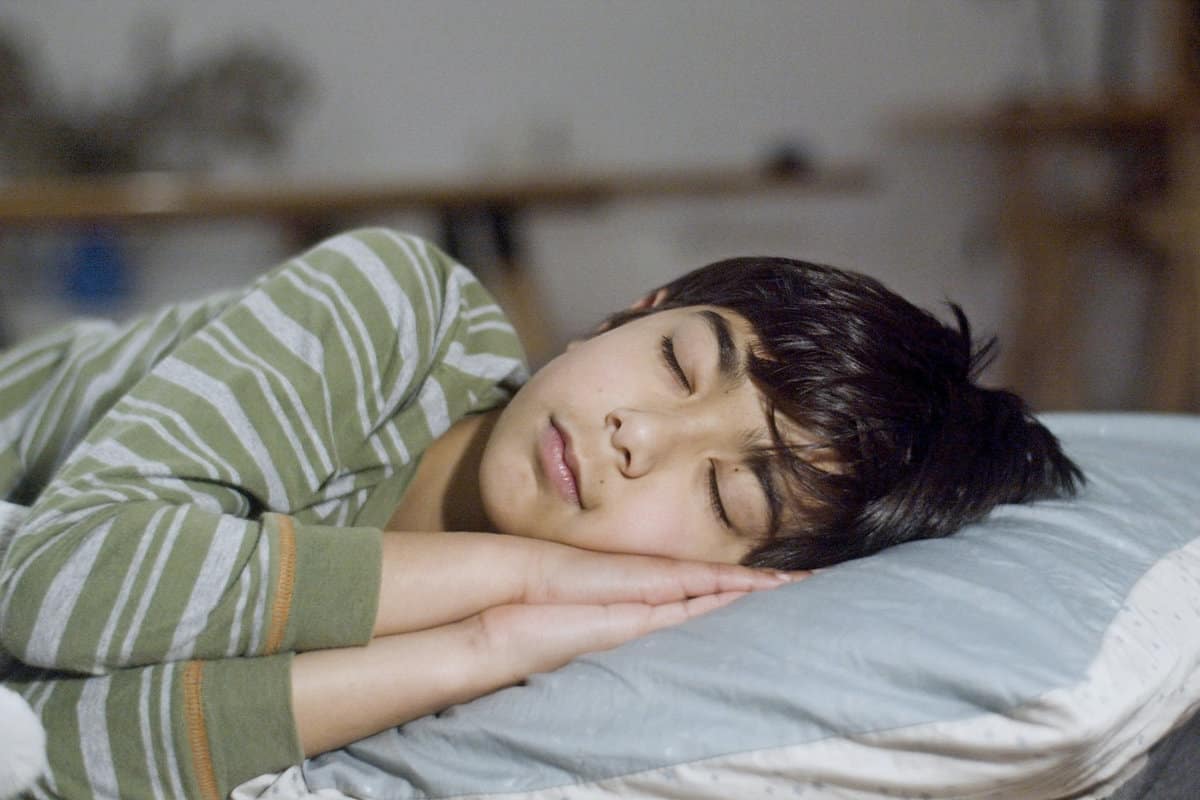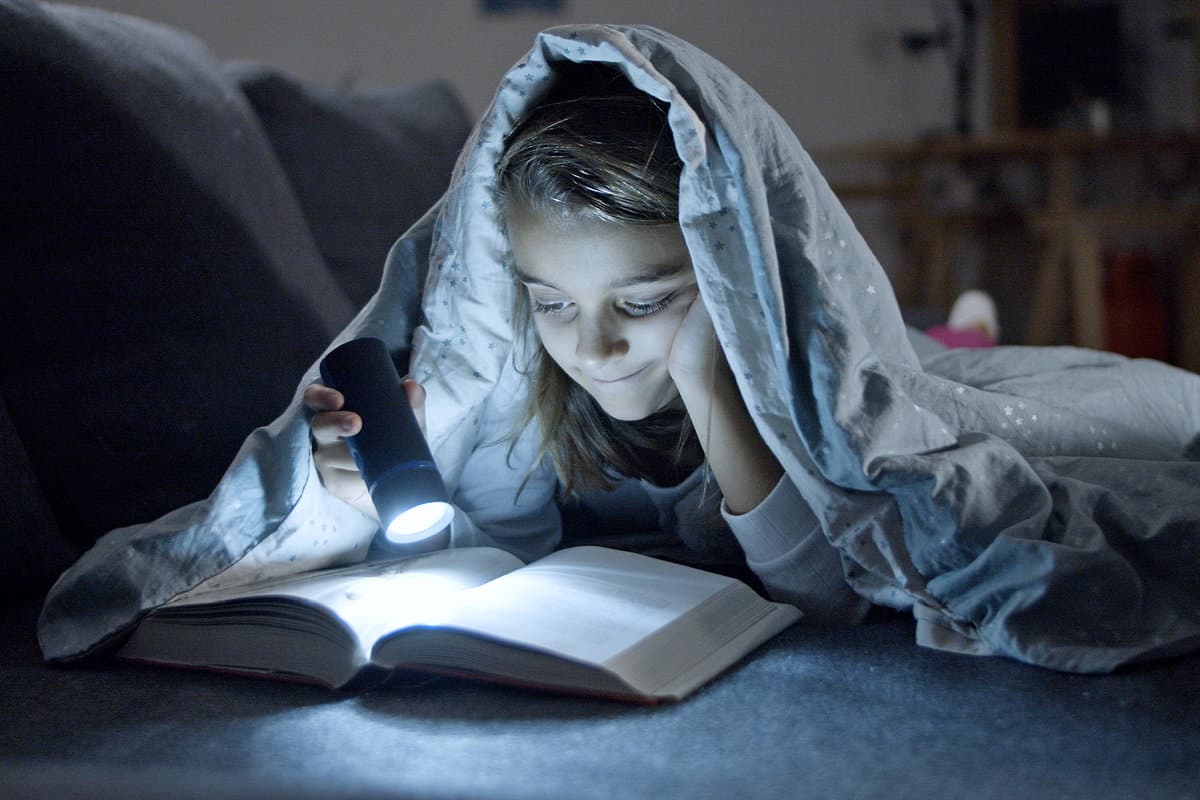Back To School Sleep Tips
A healthy sleep schedule is important for parents and kids. When it’s time for back to school season, sleep schedules can be hard to adjust after the summer months. Here are some tips to help adjust to the new back to school sleep schedule.
Sleep is important for everyone, especially students. Back to school can be a busy time, with new classrooms and routines, which can increase anxiety. It’s important to make sure you’re getting enough sleep to stay alert and focused., which will help you and your child be less stressed. In fact, getting a good night’s sleep can also help boost your immune system. But, how do you adjust your sleep schedule when it’s time for back to school? We know it’s not easy to do, so we wanted to share some back to school sleep tips. Be sure to listen to our Tips For A Better Sleep Podcast, it’s our #1 downloaded podcast for a reason…It’s that good!

8 Back To School Sleep Tips For A Better Night’s Sleep
Establish a bedtime ritual
Some ideas to help relax before bed are by reading a book, taking a hot bath/shower, or listening to calming music before bed. You can also spend family time together talking about your day. Encourage your child to write down their thoughts and goals for the next day, so they can relax and clear your mind. Deep breathing exercises or meditation will also help.
Avoid screens before bed. TV and Phones
The light emitted from screens-whether it be a television, computer, or phone-can keep us up at night. And when we’re not getting enough sleep, our health and productivity can suffer.
The National Sleep Foundation recommends avoiding screens before bedtime at least 30 minutes before bedtime. That means keeping televisions and laptops out of the bedroom, and putting phones on silent or airplane mode.
Blue light from screens can delay the release of melatonin, a hormone that helps us fall asleep. Additionally, the constant stimulation from electronic devices can keep our brains active.
Establish a regular sleep schedule
Going to bed and waking up at the same time each day helps regulate the body’s natural sleep rhythm, promoting better sleep. Additionally, establishing a regular sleep schedule makes it easier to get up in the morning and can help improve productivity during the day.
Get some exercise
Did you know that exercise can help improve your sleep? Exercise releases endorphins, which have a calming effect on the body. Additionally, exercise can help you fall asleep faster and sleep more soundly. It’s important to find the right type of exercise for you, as some exercises are more relaxing than others. Yoga and Pilates are both good options. If you’re not sure where to start, talk to your doctor or a personal trainer about creating a personalized exercise plan.
Avoid caffeine
When most people think about caffeine, they think about the energy it provides and how it can help them stay alert during the day. However, many people don’t realize that caffeine can also have negative effects on sleep if consumed too late in the day.
Caffeine is a stimulant that can stay in your system for up to six hours, so drinking coffee or other caffeinated beverages late in the day can interfere with your ability to fall asleep and get a good night’s sleep. If you’re having trouble sleeping, try avoiding caffeine after lunchtime. Trying to decide if your child should or shouldn’t have caffeine, read more about If Caffeine Is Safe For Kids.
If you’re not used to cutting out caffeine, you may experience some withdrawal symptoms such as headaches, fatigue, and irritability. But don’t worry – these symptoms usually subside within a few days.
Watch what you eat
Yes, there are some foods that will also keep you and your family awake at night. We asked Sally, our Registered Dietitian about what snacks were best for bedtime, and she told us 🙂 Here are the Best Bedtime Snacks For Kids.
Use relaxation techniques
One of the best ways to relax is to practice some simple breathing exercises. Taking a few deep breaths can help clear your mind and calm your body. You can also try yoga or stretching exercises before bedtime. These activities help loosen up your muscles and make it easier to fall asleep.
Another great way to relax is by listening to calm music or audio books before bed. This helps quiet your mind and prepare you for sleep. You can also try aromatherapy by using essential oils like lavender, chamomile, or valerian root oil. These oils have calming properties that can help you relax and fall asleep faster.
Create a calm environment for sleep
Bedrooms should be cool, dark, and noise-free for a good night’s sleep. Some like white noise and that’s okay, but TVs should be off.
I know it may be easier said than done, but when you practice this back to school sleep tips on a regular basis, hopefully your family will start adjusting to the new sleep routines. After all, sleep does help boost your immune system, and I know we could all use a boost come back to school time!
How Sleep Helps Boost Your Immune System
Not getting enough sleep can make you more susceptible to getting sick, and can also make it harder for your body to fight off infection. In fact, lack of sleep has been linked with everything from increased rates of colds and flu and more.
Scientists believe that sleep plays a key role in regulating the body’s immune response. During sleep, the body produces cytokines – proteins that help regulate the immune system – and research has shown that getting enough sleep is crucial for maintaining healthy levels of cytokines. Lack of sleep can not only lead to a weakened immune system, but can also increase inflammation in the body.
So how much sleep do you need to boost your immune system? Experts suggest that adults need between seven and nine hours of sleep per night. Some experts even go as far to say that people who don’t get enough sleep are more likely to suffer from a wide range of health problems. But what about children? The Sleep Foundation says school aged kids (6-13 years) need 9 to 11 hours of sleep a night.















